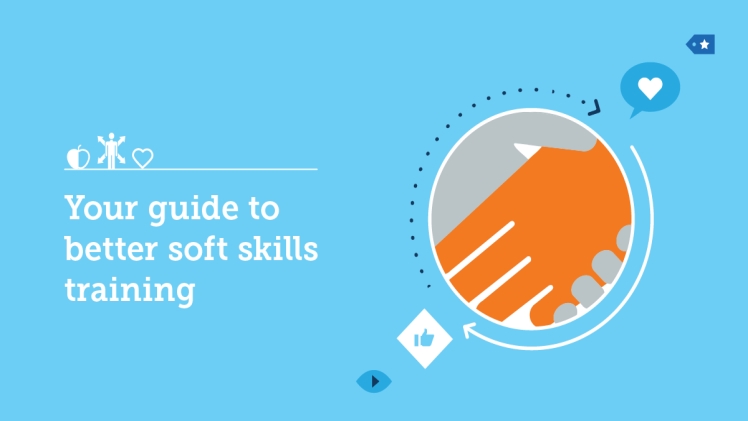Communication skills, ability to flexibly adapt to changing conditions and work in a team, creativity, leadership skills, self-management, delegation and planning skills, systematic thinking, focus on results – all these are soft skills. Depending on the position a person is applying for, the set of these skills varies.
Most soft skills are formed on the foundation of personal and professional experience. These skills are difficult to quantify, but in a team it is always noticeable who has them well developed.
So how do you develop soft skills?
First of all, say goodbye to illusions that you can attend a training, listen to a webinar or read an article and instantly become more sociable, creative and confident. Like a foreign language, soft skills stick with those who actively use them in practice. They cannot be developed quickly, it takes time, different situations and tasks.
6 ways everyone can do it
1. Expansion of horizons
People with a broad outlook have a much wider range of knowledge, hobbies and interests. They are able to look at a problem from different angles, seek details, quickly analyze the situation, and offer different solutions to problems.
Such a company employee actively participates in brainstorming sessions and puts forward ideas and sees scenarios.
To broaden your horizons, it is useful to read books, articles, listen to the speeches of specialists from different fields, participate in forums and conferences, watch informative programs, listen to interesting people.
2. Forming the right environment
When the environment is destructive, a person will also start to slide down. It is much easier to set ambitious goals, develop, master new things and thereby “pump up” soft skills for those who have active, hardworking, goal-oriented strong personalities in front of them.
Therefore, one should strive to have, first of all, like-minded people around. But at the same time we should not forget that the environment can contribute to faster development, while the main contribution is made by the person himself/herself. In no case you should not put all your hopes on someone to solve questions, cope with problems, teach how to communicate properly, build relationships with colleagues and instill creativity.
3. Changing jobs or projects
It is good when a person has the need to solve different tasks at work. Then the process does not turn into a routine, which means that there is every reason to develop. But when a person understands that work does not contribute to unlocking one’s potential, it is useful to look for another sphere of application. New tasks, challenges and goals, a different environment and unfamiliar conditions will help to develop qualities that have not been in demand before.
4. Daily self-development
No university in the world will provide the entire volume of knowledge that will be in demand later on. Nowadays, self-education is not just fashionable, it is necessary throughout life. This is the only way to constantly update your knowledge, keep track of industry trends and keep up-to-date with the information you need to make informed decisions.
That is why it will be great to make it a rule to learn something new every day. You can learn a program or a tool, Google the meaning of an unfamiliar word, learn something, solve a more complicated task. The main thing is to know more than yesterday.
5. Learning from other people’s experiences
It is said that people are only able to learn from their own mistakes. This is a stereotype. There are people close to us whose experience can be useful.
Who can you learn from? Whose example is a good source of inspiration for you? Who can you approach tomorrow and ask what you are interested in? It is enough to answer these questions and try to hear what people share, to learn valuable lessons for yourself from their stories.
6. Working with ideas and own creative projects
When a person implements his or her own project and has to be accountable and to reache your goals using tracking and billing software, even if it is small, he or she faces the need to fully immerse in the process, to think through the various stages and details, to coordinate with other people, to be both an inspirer and an organizer. All this helps not only to develop soft skills, but also to realize oneself as a multifaceted person.
Virtually everything in our lives contributes to the development of soft skills. The main thing is to be open to new knowledge and skills, take advantage of opportunities and understand that there is always something to strive for.

